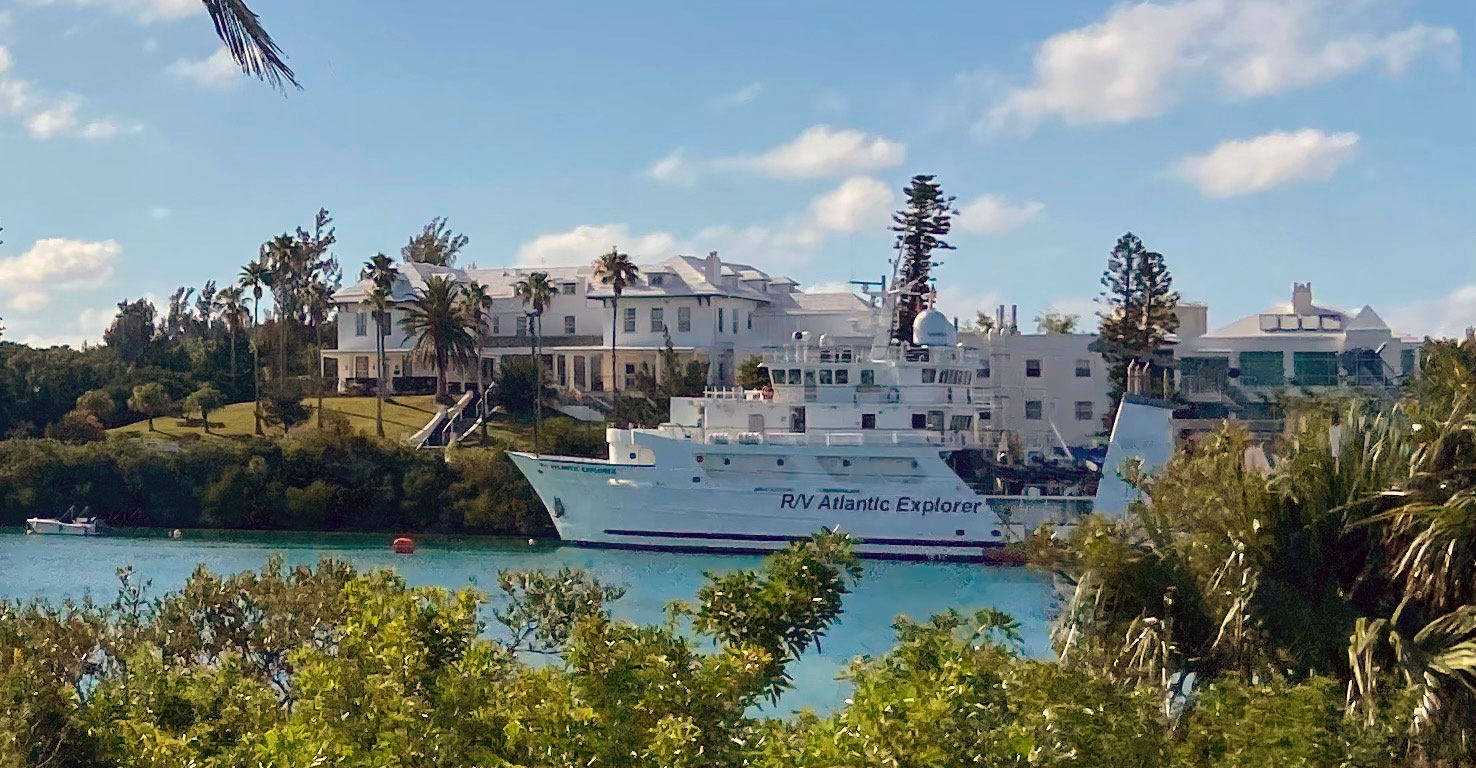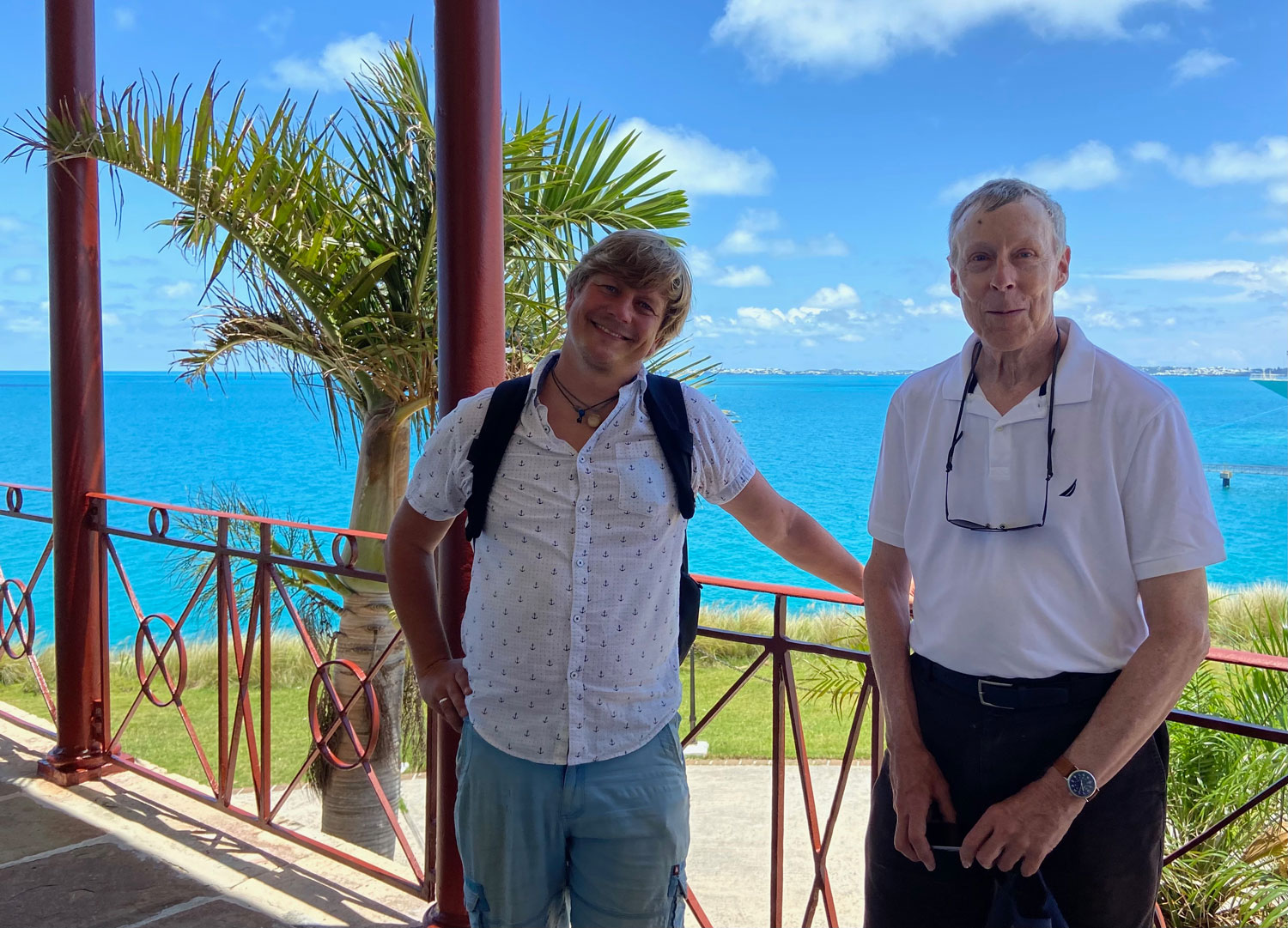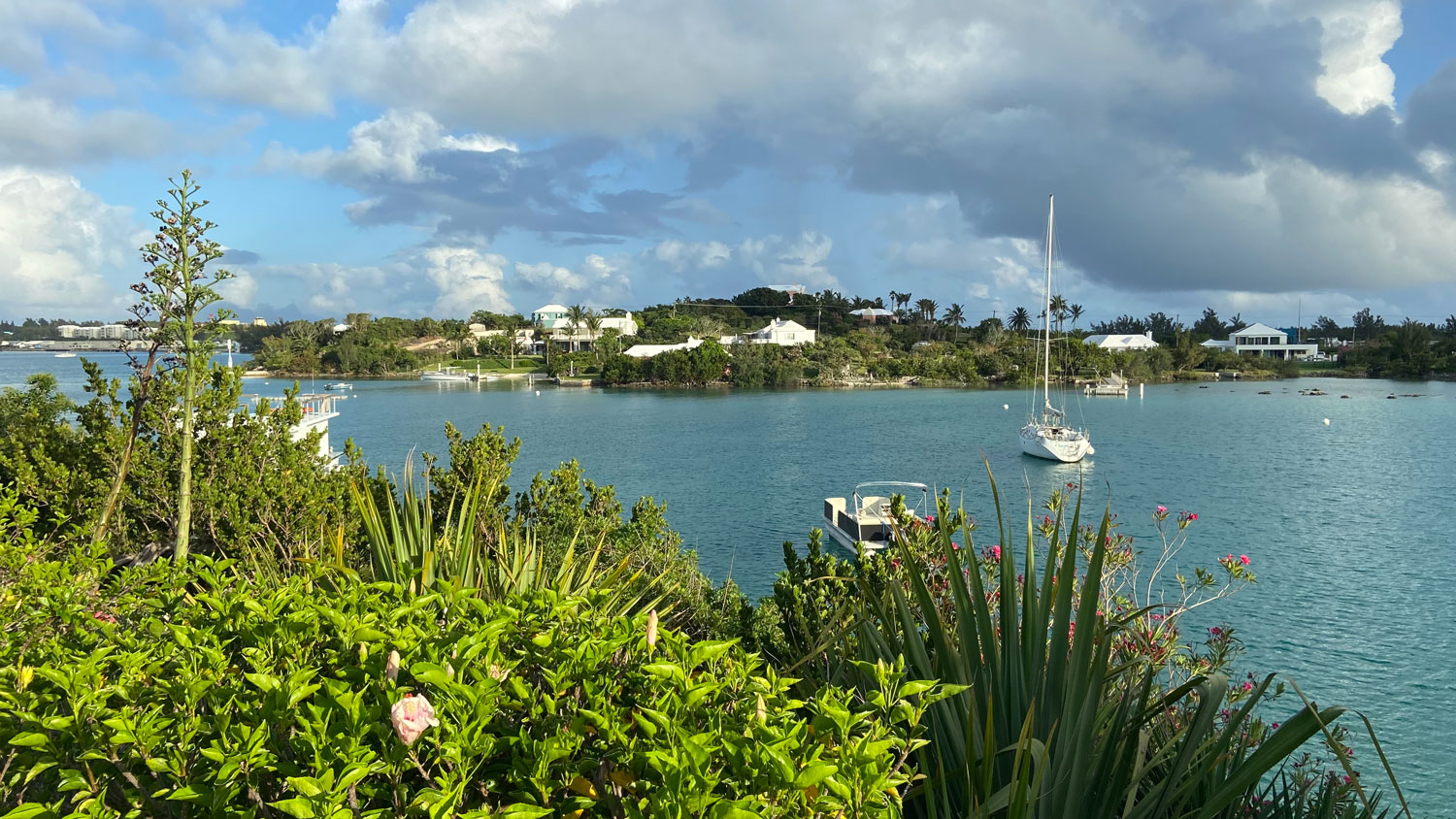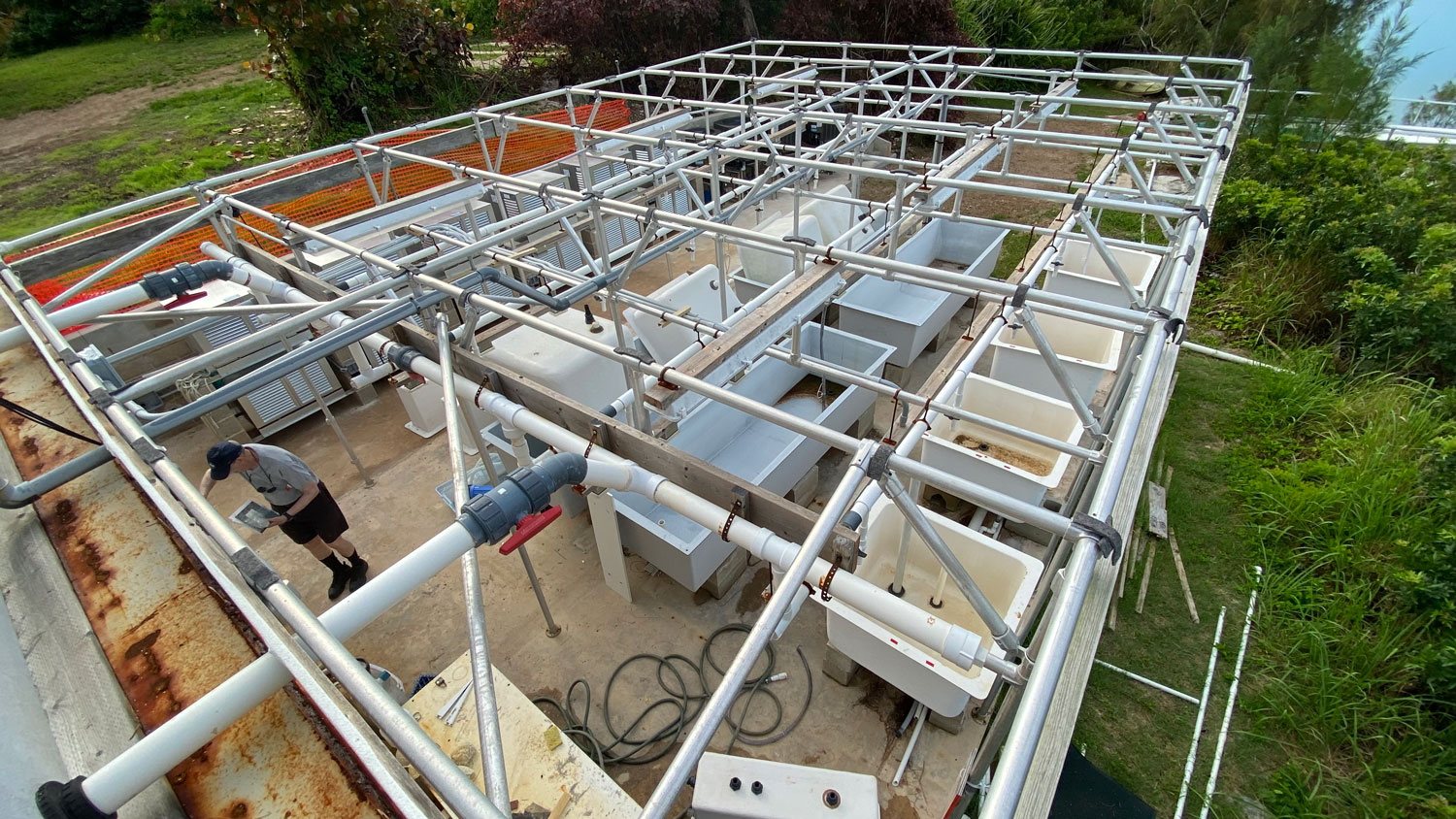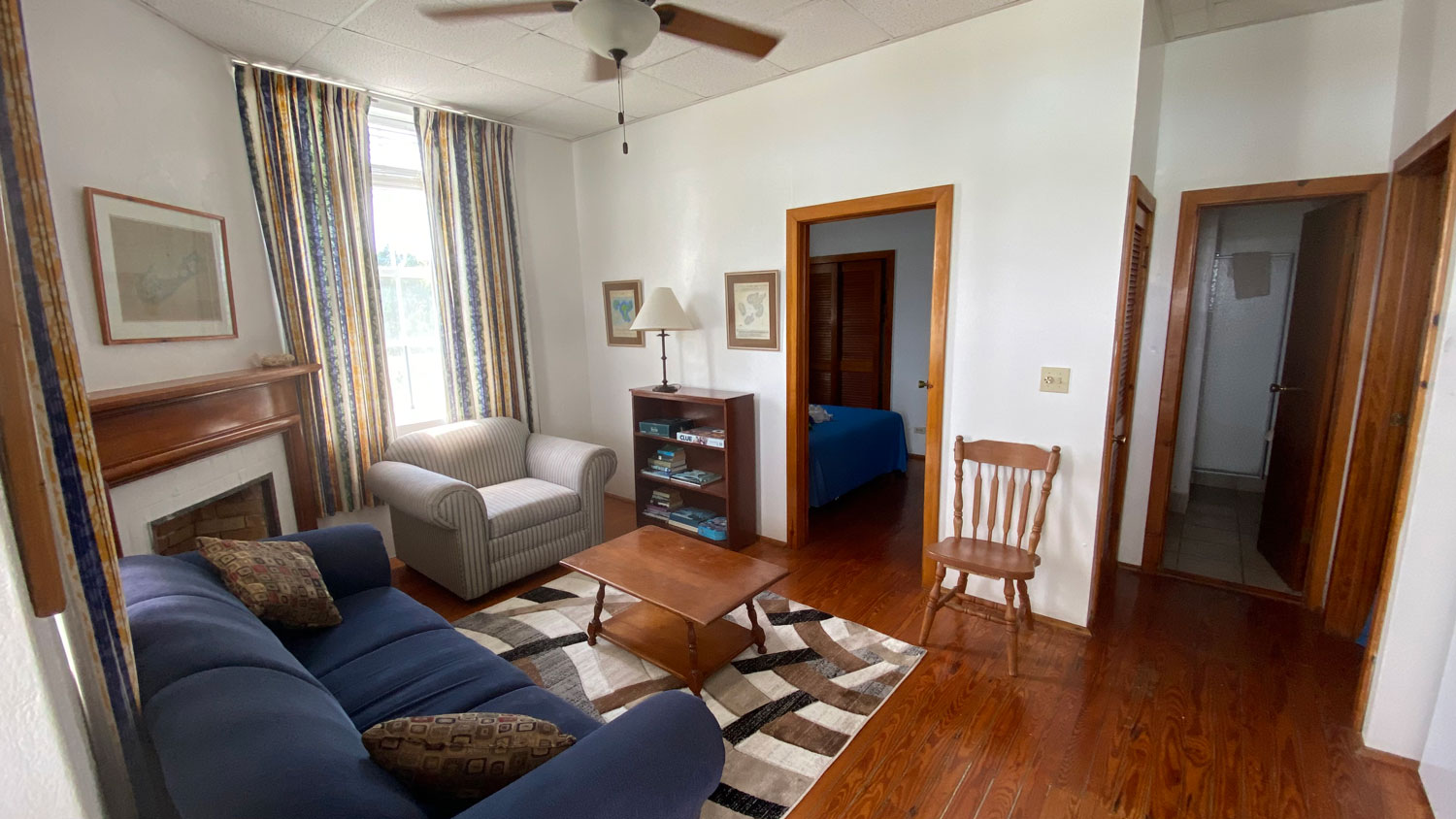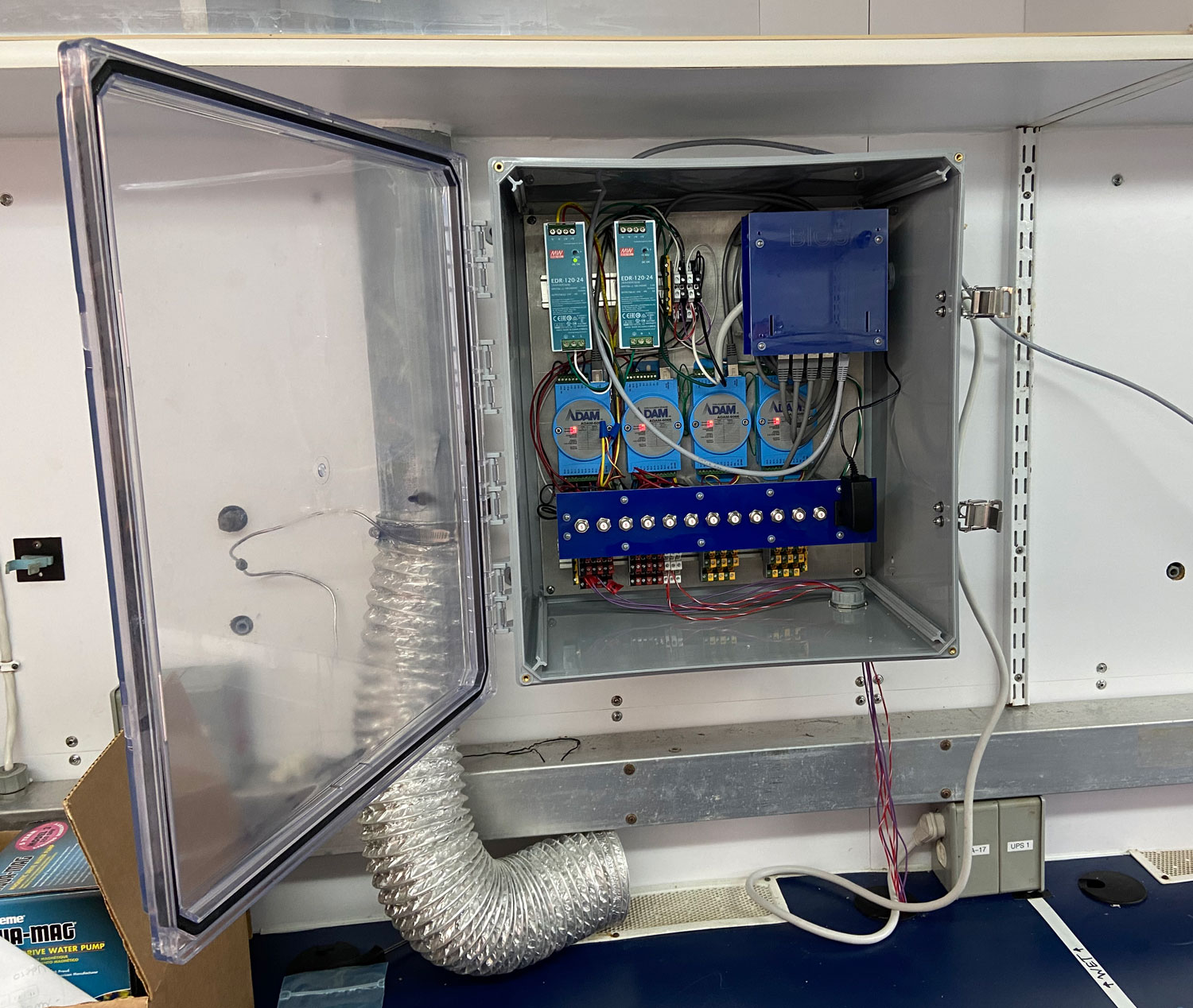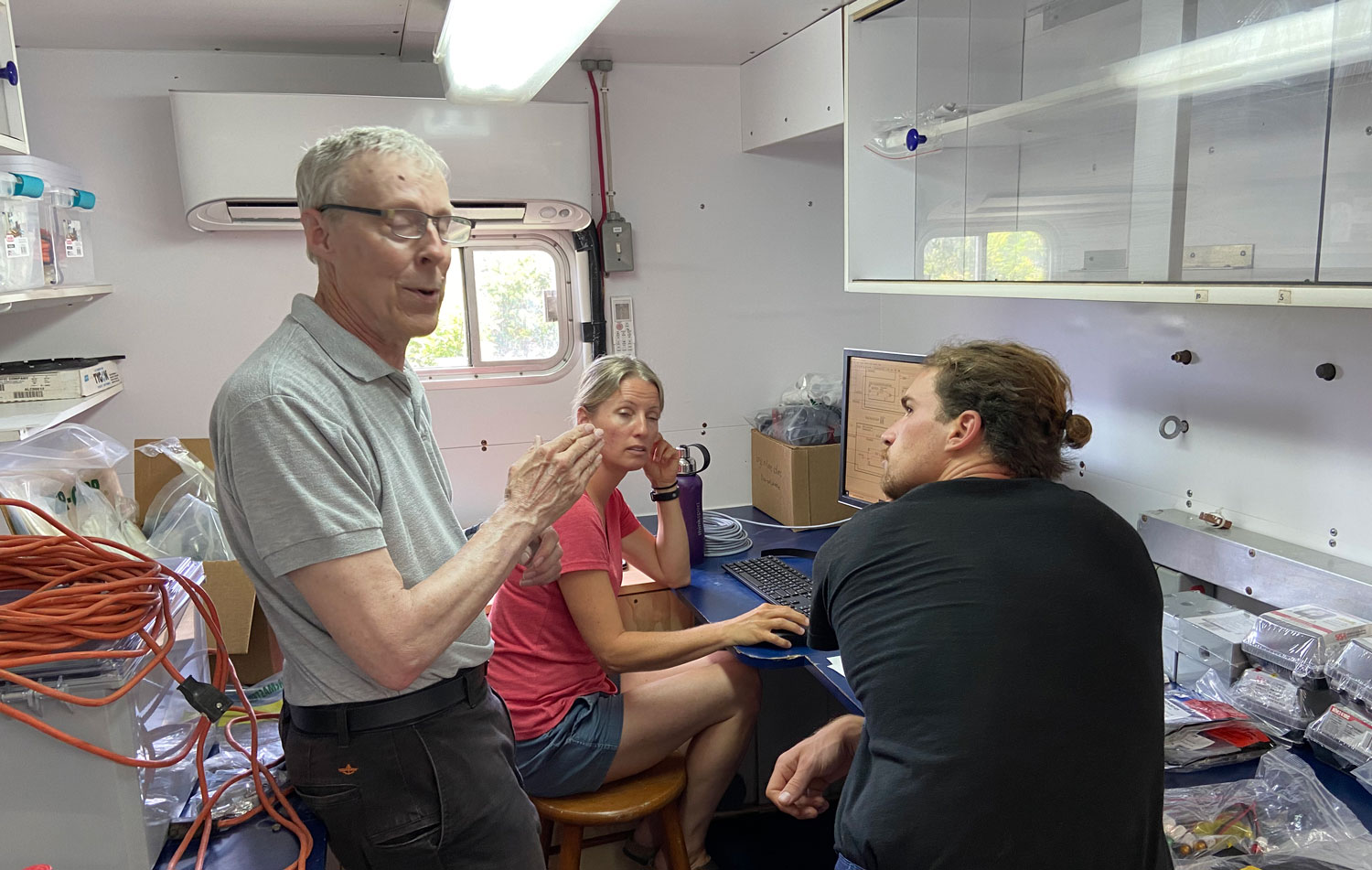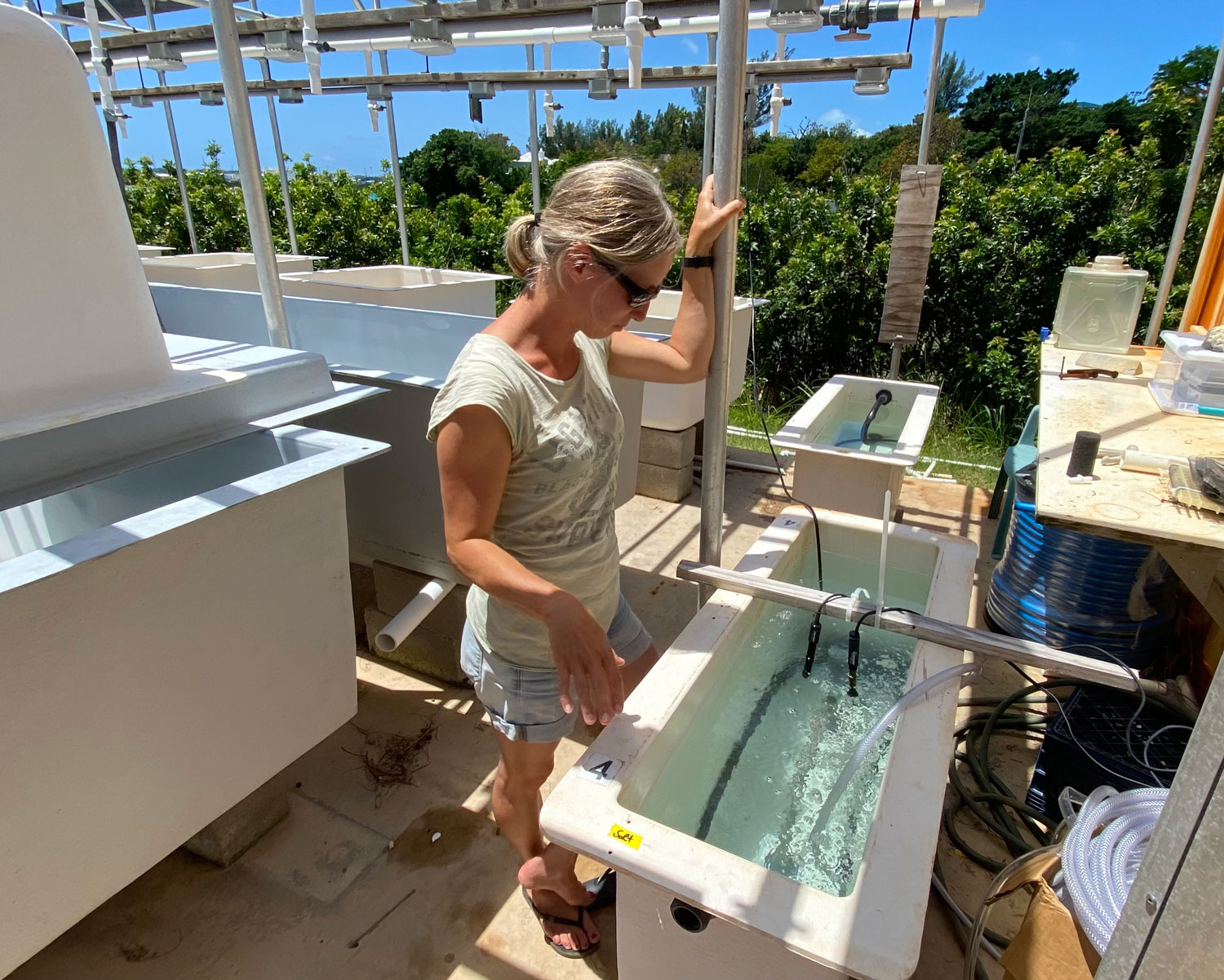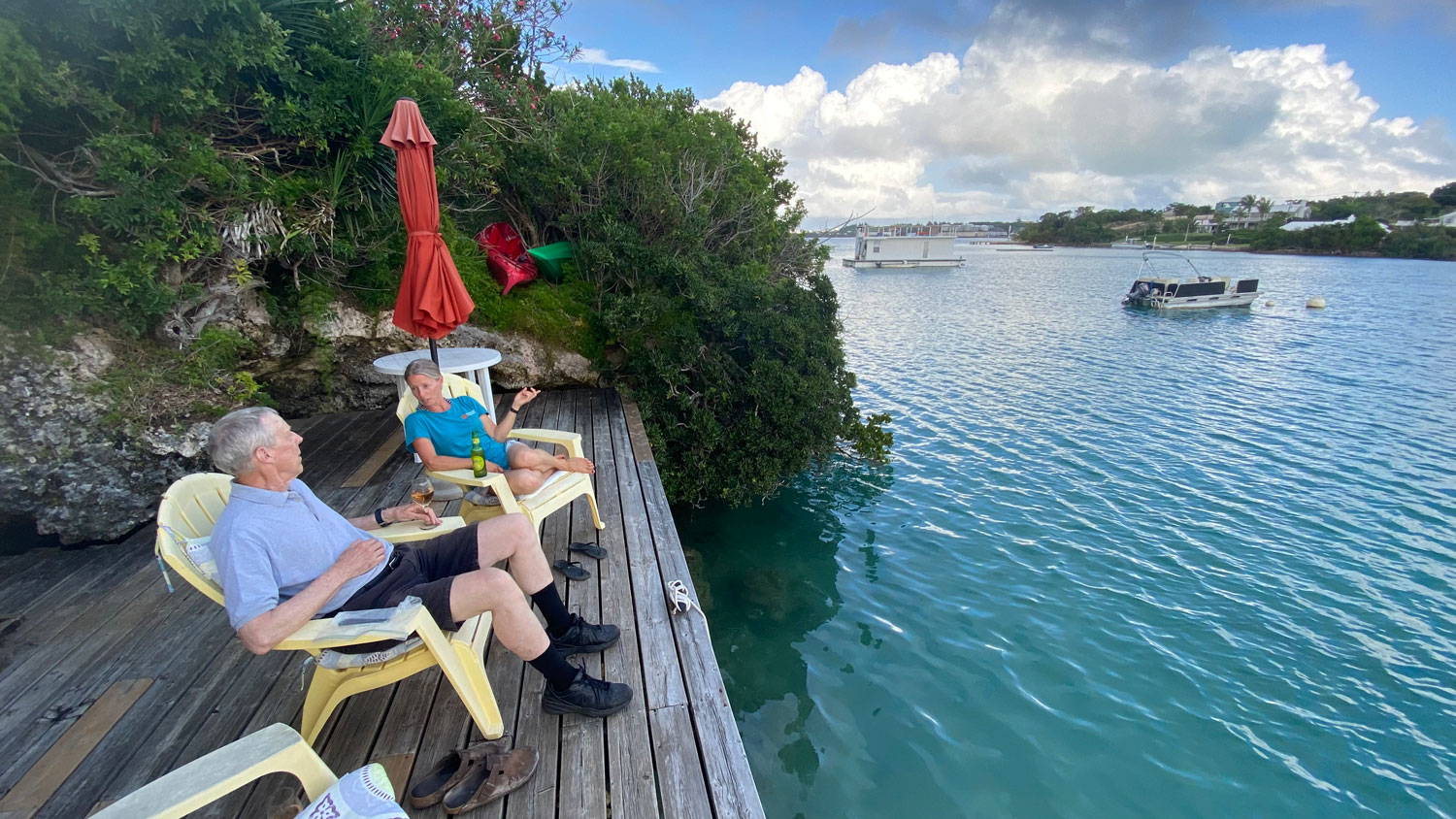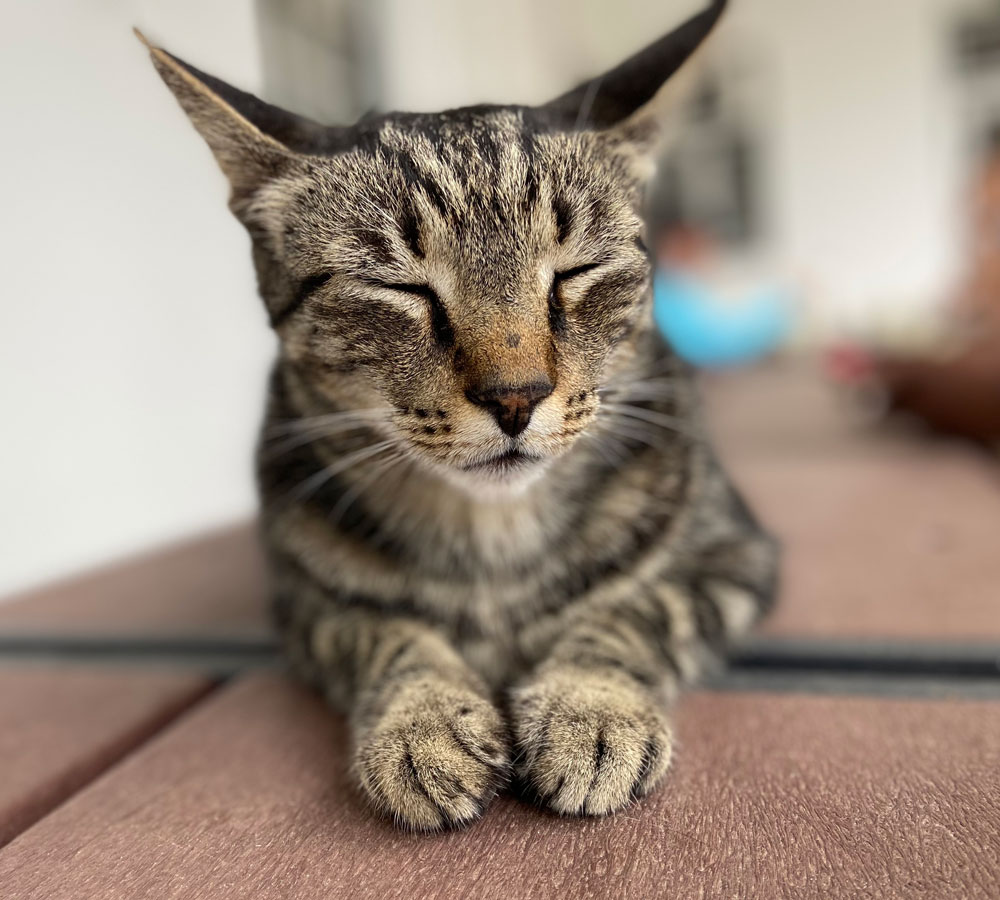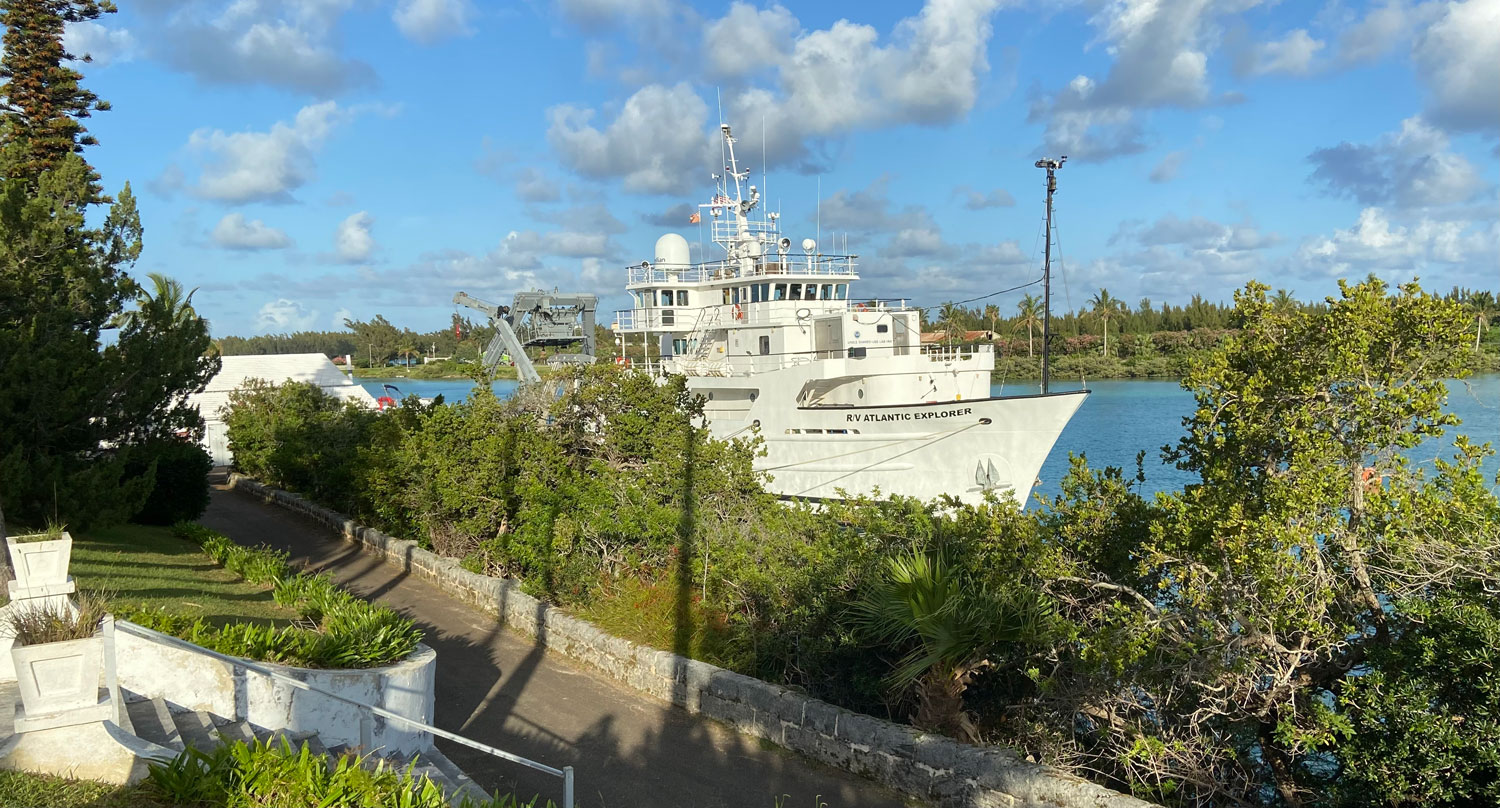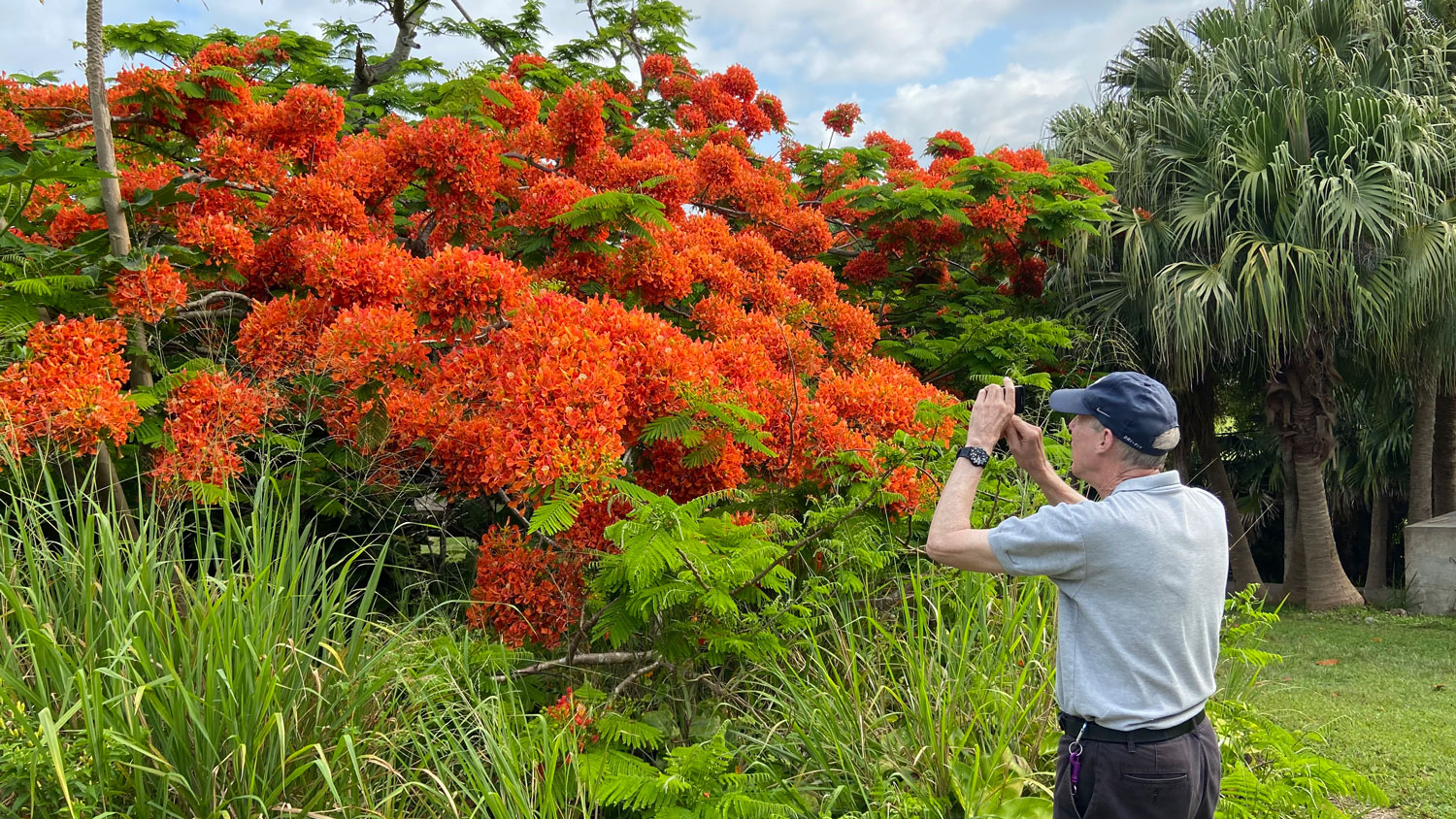29 May 2022. When in a few months researchers and students at the Bermuda Institute of Ocean Science (BIOS) begin using their new outdoor mesocosm facility, they can now manipulate and control the CO2 levels in as many of 9 flow-through basins. The important new capacity of the system will allow realistic ocean warming and acidification experiments and has been the product of a wonderful collaboration between BIOS researcher Dr. Yvonne Sawall and our UConn Marine Sciences team consisting of John Hamilton and Hannes Baumann.
The newly developed system shares some of the design ideas with ALFiRiS, the factorial rearing system we developed and used over the past years at UConn's Rankin Seawater Lab. For example, we again developed and installed a central pH measurement hub that sequentially collects water samples via pumps from each of 12 independent basins, which is advantageous, because it only relies on a single, high-end pH sensor, therefore making measurements always comparable. Similarly, we are using LabView software (National Instruments) to switch pumps on and off and log, display, and graph the pH conditions in real time for researchers to have confidence in their chosen environmental parameters.
While most of the planning and design work was done remotely via frequent online meetings, Hannes and John worked with Yvonne during the past week at the BIOS station on installing and testing the systems major components. Working mostly out in the open under a warm and clear Bermudan sky was a particular treat of this assignment. Big shout-out, too, to facilities manager Kevin Hollis for his tireless onsite help!
Despite setbacks in form of supply chain delays and an unfortunate last moment COVID infection preventing team member Lucas Jones from traveling to Bermuda, soon the new outdoor mesocosm facility at BIOS will become operational and allow new and advanced kinds of experimental research on global change biology.
